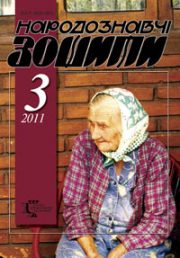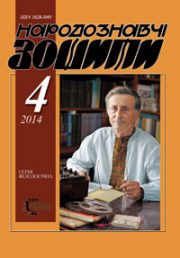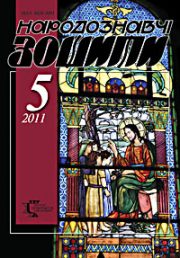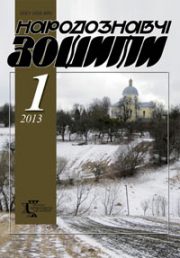2023 year, issue 5
The Ethnology Notebooks. 2023. № 5 (173). P. 1151-1330
DOI https://doi.org/10.15407/nz2023.05
Articles
Reviews
Iryna Koval-Fuchylo
Research on the adaptation of refugee women in Polish society
1305—1309
Mykhailo Hlushko
National morality is the basis of the vitality of the ethnic group
1310—1314
Information







